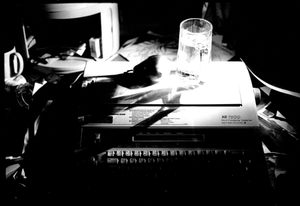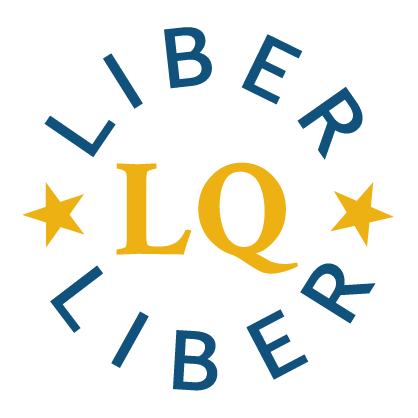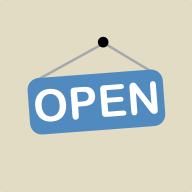Overview
While these particular emphases have been enduring interests, each has emerged successively. I moved to the UK to work for what was then The Centre for Bibliographic Management, at the University of Bath, which later morphed into the UK Office for Library and Information Networking (UKOLN). So my early focus was very much on the emerging apparatus of metadata, networking and related approaches. However, this evolution from the specialist to the more social or organizational is maybe not surprising in a typical career trajectory? It also reflects of course the changing reality of digital and the network during these years, as they have become more pervasive of our behaviors and social organization.
Through his extensive writing, inspirational speaking and thought-provoking online presence … Lorcan is responsible for a wide range of influential concepts that have shaped the conversation about the future of libraries in the broader information environment. // Citation for the award of Hon. Doctorate from the Open University.
Most of my writing has been professional in focus, motivated by a desire to influence practice and direction. The emphasis is often on environmental analysis, description of particular initiatives, or exploration of near-term trends. It tends to be synthetic and not explicitly theoretical, although I do discuss shaping influences below.
The unifying theme of this chronological arc has been the threefold entanglement of library organizations and services, learning and research behaviors, and the developing digital network. Alongside an abiding commitment to the value and social contribution of the library. Taken as a whole, a modest contribution of this work is to present a view of the historical development of libraries in this crucial network period.
I include a fullish chronological list of publications below. Many are available open access, especially in more recent years. This is followed by some consideration of central themes.
Here I am on the scholarly engines ...
A list of publications
Papers: *peer reviewed and professional
*Reflections on collective collections.
Reflections on Collective Collections. College & Research Libraries, 81(6), 2020. (with Brian Lavoie and Constance Malpas).
https://doi.org/10.25333/t51w-b252
What Collaboration Means to Me: Library collaboration is hard; effective collaboration is harder.
Collaborative Librarianship, Vol. 10: Iss. 4, Article 3. 19 March 2019.
https://digitalcommons.du.edu/cgi/viewcontent.cgi?article=1409&context=collaborativelibrarianship
Academic Library Futures in a Diversified University System.
In: Gleason N. (eds) Higher Education in the Era of the Fourth Industrial Revolution. Palgrave Macmillan, Singapore, 2018. (with Constance Malpas).
https://link.springer.com/chapter/10.1007/978-981-13-0194-0_4
*Library collections in the life of the user: two directions.
Liber Quarterly, Vol. 26, No. 4, 2016.
https://www.liberquarterly.eu/articles/10.18352/lq.10170/
A Platform Publication for a Time of Accelerating Change.
College & Research Libraries, 75, November 2014: 760-762. (with Scott Walter).
https://crl.acrl.org/index.php/crl/article/view/16387/17833
*Collection Directions: The Evolution of Library Collections and Collecting.
portal: Libraries and the Academy, 14, 3 (July 2014), 393–423. (with Constance Malpas and Brian Lavoie).
portal: https://muse.jhu.edu/article/549200
PDF: https://www.oclc.org/content/dam/research/publications/library/2014/oclcresearch-collection-directions-preprint-2014.pdf
Thirteen ways of looking at libraries, discovery and the catalog: scale, workflow, attention.
Educause Review Online. December 10, 2012.
http://www.educause.edu/ero/article/thirteen-ways-looking-libraries-discovery-and-catalog-scale-workflow-attention
Libraries and the Informational Future: Some Notes
in Information Professionals 2050: Educational Possibilities and Pathways, Moran. Chapel Hill, NC: University of North Carolina at Chapel Hill, 2012, pp. 113-26.
http://sils.unc.edu/news/2012/ip2050-book-video
Also published by UNC on Lulu and appears in a special issue of Information Services and Use.
http://www.oclc.org/resources/research/publications/library/2012/dempsey-informationalfutures.pdf
Beyond 1923: Characteristics of Potentially In-copyright Print Books in Library Collections.
D-Lib Magazine, Vol. 15, No. 11/12, November/December 2009. (with Brian F. Lavoie)
http://www.dlib.org/dlib/november09/lavoie/11lavoie.html
*Always on: libraries in a world of permanent connectivity.
First Monday, vol 14 No. 1, 5 January 2009.
http://firstmonday.org/htbin/cgiwrap/bin/ojs/index.php/fm/article/view/2291/2070
An earlier version of this paper appeared in Mohamed Ally and Gill Needham (eds). M-Libraries: libraries on the move to provide virtual access. London: Facet, 2008.
*Reconfiguring the Library Systems Environment.
portal: Libraries and the Academy, Vol. 8, No. 2, April 2008.
http://www.oclc.org/research/publications/archive/2008/dempsey-portal.pdf
The History of Libraries in Modern 'Britain and Ireland'
[Review article] Ariadne, Issue 53, October 2007. Review of Alistair Black and Peter Hoare (eds). 2006. The Cambridge History of Libraries in Britain and Ireland. Cambridge, UK: Cambridge University Press. Volume III, 1850-2000.
http://www.ariadne.ac.uk/issue/53/maccoll-dempsey-rvw/
The Library Catalogue in the New Discovery Environment: Some Thoughts.
Ariadne, Issue 48, July 2006.
http://www.ariadne.ac.uk/issue/48/dempsey/
A Service Framework for Libraries.
D-Lib Magazine, Vol. 12, No. 7/8, July/August 2006. (with Brian F. Lavoie and Geneva Henry).
http://www.dlib.org/dlib/july06/lavoie/07lavoie.html
Libraries and the Long Tail: Some Thoughts about Libraries in a Network Age.
D-Lib Magazine, Vol. 12, No. 4, April 2006.
http://www.dlib.org/dlib/april06/dempsey/04dempsey.html
The (Digital) Library Environment: Ten Years After.
Ariadne, Issue 46, February 2006.
http://www.ariadne.ac.uk/issue/46/dempsey/
Anatomy of aggregate collections: the example of Google Print for Libraries.
D-Lib Magazine, Vol. 11, No. 9, September 2005. (with Brian F. Lavoie and Lynn Silipigni Connaway).
http://www.dlib.org/dlib/september05/lavoie/09lavoie.html
Reprinted in Zeitschrift fur Bibliothekswesen und Bibliographie, Vol. 52, No. 6, 2005. pp 299-310.
Thirteen ways of looking at ... digital preservation.
D-Lib Magazine, Vol. 10, No. 7/8, July/August 2004. (with Brian F. Lavoie)
http://www.dlib.org/dlib/july04/lavoie/07lavoie.html
Also in: Kresh, D. (2007). The whole digital library handbook. Chicago: American Library Association.
The recombinant library: portals and people
Co-published simultaneously in Journal of Library Administration, Vol. 39, No. 4, 2003, pp. 103-136; and in Improved Access to Information: Portals, Content Selection, and Digital Information, edited by Sul H. Lee, pp. 103-136. Binghamton, NY: Haworth (2003).
Pre-print available at:
http://www.oclc.org/research/staff/dempsey/recombinant_library/
The Distributed National Electronic Resource (DNER) and the hybrid library.
Ariadne, Issue 26, January 2001. (with Stephen Pinfield).
http://www.ariadne.ac.uk/issue/26/dner/
A policy context - eLib and the emergence of the subject gateways.
Ariadne, Issue 25, September 2000. (with Derek Law).
http://www.ariadne.ac.uk/issue/25/subject-gateways/
RSLP collection description.
D-Lib Magazine, September 2000. (with Andy Powell and Michael Heaney)
http://www.dlib.org/dlib/september00/powell/09powell.html
The subject gateway: experiences and issues based on the emergence of the Resource Discovery Network.
Online Information Review, 24(1), 2000, 8-23. Preprint available at:
http://www.ukoln.ac.uk/metadata/publications/ior/dempsey.htm
The scientific, industrial and cultural heritage: a shared approach: a research framework for digital libraries, museums and archives.
Ariadne, 22, 2000. (Slightly revised version of EC report.)
http://www.ariadne.ac.uk/issue/22/dempsey/
The network and the library: working in a new shared space: infrastructure and institutions.
The Electronic Library. August 1999. (Guest editorial article for special libraries and networking theme issue.)
http://homes.ukoln.ac.uk/~lisld/publications/electlib.html
International information gateway collaboration: report of the first IMesh Framework Workshop.
D-Lib Magazine, Vol. 5, No. 12. December 1999. (with Tracy Gardner, Michael Day and Titia van der Werf)
http://www.dlib.org/dlib/december99/12dempsey.html
*The library, the catalogue, the broker.
New Review of Information Networking, Volume 5, 1999. (Also available in: Information landscapes and a learning society: networking and the future of libraries 3. Sally Criddle, Lorcan Dempsey, Richard Heseltine, eds. London: Library Association Publishing, 1999.)
http://www.ukoln.ac.uk/dlis/models/publications/landscape/
*Library places and digital information spaces: reflections on emerging network services.
Alexandria, 11(1), 1999, 51-58. (An amended version of: Places and spaces. In: Towards the digital library: the British Library’s Initiatives for Access programme. Edited by Leona Carpenter, Simon Shaw and Andrew Prescott. London: British Library, 1998, 234-241.)
http://homes.ukoln.ac.uk/~lisld/publications/alex.html
*Community networking: development, potentials and implications for public libraries.
Journal of librarianship and information science. 31(2), 1999, 71-83. (With Liangzhi Yu and Sarah Ormes)
*From files to landscapes: network information management and UKOLN.
Journal of Documentation, 55(1), 1999, 1-5. (Introductory article to special issue on UKOLN work.)
*A utopian place of criticism?: brokering access to network information.
Journal of Documentation, 55(1), 1999, 33-70. (with Rosemary Russell and Robin Murray)
http://www.ukoln.ac.uk/dlis/models/publications/utopia/
*A distributed national electronic resource?
The Electronic Library, 16(4), 1998, 231-237. (with Rosemary Russell)
*The emergence of distributed library systems: a European perspective.
Journal of the American Society of Information Scientists. 49(10), 1998, 942-951. (with Robin Murray and Rosemary Russell)
*Managing access to a distributed library resource.
Program, 32(3),1998, 265-281. (with Robin Murray, Rosemary Russell, and Richard Heseltine).
http://www.ukoln.ac.uk/dlis/models/models5/report.rtf
*Metadata: a current review of practice and issues.
Journal of Documentation, 54(2), March 1998, 145-172. (with Rachel Heery.)
http://www.ukoln.ac.uk/metadata/publications/jdmetadata/
*‘Clumps’ - or distributed access to scholarly material.
Program, 31(3), July 1997. (With Rosemary Russell.)
http://www.ukoln.ac.uk/dlis/models/models3/program.html
*Scientific information supply: building networked information systems.
The Electronic Library, Vol 14, No. 4, August 1996. (with Maria Heijne)
Warwick Metadata Workshop: a framework for the deployment of resource description.
D-Lib Magazine, July/August 1996. (With Stu Weibel)
http://www.dlib.org/dlib/july96/07weibel.html
ROADS to Desire: some UK and other European metadata and resource discovery projects.
D-Lib Magazine, July/August 1996.
http://www.dlib.org/dlib/july96/07dempsey.html
Meta detectors: metadata and resource discovery.
Ariadne, Issue 3, May 1996.
http://www.ukoln.ac.uk/ariadne/issue/3/metadata/
*Towards distributed library systems: Z39.50 in a European context.
Program, 30 (1), January 1996, 1-22. (With Rosemary Russell and John Kirriemuir)
https://www.emerald.com/insight/content/doi/10.1108/eb047214/full/html
(Paywall version. Program was published by Aslib when this article appeared. Aslib undertook to make an open version available. That disappeared when Aslib was acquired.)
The public library and the information superhighway.
Vine, Issue no. 98, March 1995.
http://www.ukoln.ac.uk/services/papers/ukoln/dempsey-1995-01/
Beyond the Internet: developing library services.
The Law Librarian, 26(1), 1995.
The UK, networking and the European libraries programme.
Library and Information Briefing, 57. London: LITC, 1995.
*Towards the virtual library: standards of relevance to networked library services
Axis, 1(1), 1994. (with Bill Tuck and Anne Mumford).
Art and the Internet. Art Libraries Journal, 19(4), 1994, 10-14. (With Ann Lennon)
Networks, standards and end-user information services.
Vine, December 1993.
http://www.ukoln.ac.uk/~lisld/publications/nseu.htm
*Academic networks and academic information services: towards an academic information infrastructure.
Journal of Information Networking. 1 (1), 1993, 1-27.
Libraries and networking.
Library and Information Briefing, 37/38. London: LITC, 1992.
Publishers and libraries: an all-through system for bibliographic data?
International Cataloguing and Bibliographic Control. 20 (3), July/September 1991, 37-41.
http://www.ukoln.ac.uk/services/papers/ukoln/dempsey-1991-01/ubcim.rtf
Users' requirements of bibliographic records: publishers, booksellers, librarians.
ASLIB Proceedings, 42 (2), February 1990, 61-69.
Books/monographs
Operationalizing the BIG Collective Collection: A Case Study of Consolidation vs Autonomy.
Dublin, OH: OCLC Research, 2019. (with Constance Malpas and Mark Sandler)
https://doi.org/10.25333/jbz3-jy57
An Exploration of the Irish Presence in the Published Record.
An OCLC Research report, 20 February 2018. (with Brian Lavoie)
https://www.oclc.org/content/dam/research/publications/2018/oclcresearch-irish-published-record.pdf
New roles for the road ahead: essays commissioned for the ACRL's 75th anniversary.
Chicago: ACRL, 2015. (with Stephen J. Bell, Barbara Fister, Nancy Allen, and Lizabeth Wilson)
The Network Reshapes the Library: Lorcan Dempsey on Libraries, Services and Networks.
Chicago: ALA Publishing, 2014. Ken Varnum, ed.
https://www.oclc.org/research/publications/2014/network-reshapes-library-2014-overview.html
Understanding the Collective Collection: Towards a System-wide Perspective on Library Print Collections.
with Brian Lavoie, Constance Malpas, Lynn Silipigni Connaway, Roger C. Schonfeld, JD Shipengrover, and Günter Waibel. Dublin, Ohio: OCLC Research, 2013.
http://www.oclc.org/research/publications/library/2013/2013-09.pdf
The 2003 OCLC Environmental Scan: Pattern Recognition: a Report to the OCLC Membership.
Dublin, Ohio: OCLC Online Computer Library Center, 2004. (with Cathy de Rosa and Alane Wilson) (also translated into Spanish)
Libraries, networks and OSI.
1992 edition. Westport CT.: Meckler, 1992. ISBN 0-88736-818-2. (first edition published by UKOLN, University of Bath, 1991)
Bibliographic records: use of data elements in the book world.
Bath: Bath University Library, 1989. ISBN 0861970853
Papers: contributions to books and proceedings
Library discovery directions.
In McLeish, Simon. Resource discovery for the twenty-first century library: case studies and perspectives on the role of IT in user engagement and empowerment. London: Facet Publishing, 2020.
Preprint: https://www.oclc.org/content/dam/research/publications/2020/oclcresearch-library-discovery-directions-preprint.pdf
The Emergence of the Collective Collection: Analyzing Aggregate Print Library Holdings.
In: Understanding the Collective Collection: Towards a System-wide Perspective on Library Print Collections. Dempsey, Lorcan, Brian Lavoie, Constance Malpas, Lynn Silipigni Connaway, Roger C. Schonfeld, JD Shipengrover, and Günter Waibel. Dublin, Ohio: OCLC Research, 2013
http://www.oclc.org/content/dam/research/publications/library/2013/2013-09intro.pdf.
Always on: libraries in a world of permanent connectivity.
In: International M-Libraries Conference, Mohamed Ally, and Gill Needham. M-Libraries: Libraries on the Move to Provide Virtual Access. London: Facet, 2008. (A revised version of this paper appears under the same name in First Monday, Vol. 14, No. 1, 5 January 2009)
Intermediate consumers
netConnect, 15 July 2005. Also in: Kresh, D. (2007). The whole digital library handbook. Chicago: American Library Association.
http://www.libraryjournal.com/article/CA609689.html
Thirteen ways of looking at ... digital preservation.
D-Lib Magazine, Vol. 10, No. 7/8, July/August 2004. (with Brian F. Lavoie) Also in: Kresh, D. (2007). The whole digital library handbook. Chicago: American Library Association.
http://www.dlib.org/dlib/july04/lavoie/07lavoie.html
The recombinant library: portals and people
Co-published simultaneously in Journal of Library Administration, Vol. 39, No. 4, 2003, pp. 103-136; and in Improved Access to Information: Portals, Content Selection, and Digital Information, edited by Sul H. Lee, pp. 103-136. Binghamton, NY: Haworth (2003).
http://www.oclc.org/research/staff/dempsey/recombinant_library/
Metadata Switch: thinking about some metadata management and knowledge organization issues in the changing research and learning landscape.
In: EScholarship: A LITA Guide, ed. Debra Shapiro (2005). February 2005
with Eric R. Childress, Carol Jean Godby, Thomas B. Hickey, Andrew Houghton, Diane Vizine-Goetz, and Jeff Young.
http://www.oclc.org/research/publications/archive/2004/dempsey-mslitaguide.pdf
The library, the catalogue, the broker.
In: Information landscapes and a learning society: networking and the future of libraries 3. Sally Criddle, Lorcan Dempsey, Richard Heseltine, eds. London: Library Association Publishing, 1999. (Also available in New Review of Information Networking, Volume 5, 1999.)
http://www.ukoln.ac.uk/dlis/models/publications/landscape/
Places and spaces.
In: Towards the digital library: the British Library’s Initiatives for Access programme. Edited by Leona Carpenter, Simon Shaw and Andrew Prescott. London: British Library, 1998, 234-241. (a slightly amended version of this paper is available as Library places and digital information spaces: reflections on emerging network services. Alexandria, 11(1), 1999, 51-58.)
http://homes.ukoln.ac.uk/~lisld/publications/alex.html
In at the shallow end: metadata and cross-domain resource discovery.
In: Discovering online resources across the humanities: a practical implementation of the Dublin Core. Edited by Paul Miller and Daniel Greenstein on behalf of the Arts and Humanities Data Service and the UK Office for Library and Information Networking. Bath: UKOLN, 1997, 63-71. (with Rosemary Russell and Rachel Heery.)
http://www.ukoln.ac.uk/metadata/publications/ahds-ukoln/disc_07.html
Crossing the great divide: integrating access to the scholarly record.
In: Discovering online resources across the humanities: a practical implementation of the Dublin Core. Edited by Paul Miller and Daniel Greenstein on behalf of the Arts and Humanities Data Service and the UK Office for Library and Information Networking. Bath: UKOLN, 1997, 7-12. (with Daniel Greenstein.)
http://www.ukoln.ac.uk/metadata/publications/ahds-ukoln/disc_02.html
Metadata and libraries: background and introduction.
In: Second international summer school on the digital library. Jola Prinsen and Elsenoor Meijer (eds). Tilburg: Ticer B.V., 1997. P. 8.1-8.9.
Network resource discovery: a European library perspective.
In: Libraries, networks and Europe: a European networking study. Neil Smith, ed. London: British Library, 1994 (Library and Information Research Paper 101), 29-68.
http://www.lub.lu.se/UB2proj/LIS_collection/lorcan.html
RADAR reflections: Internet resource access, discovery and retrieval systems and libraries.
In: Library networking in Europe. Proceedings of a conference held in Brussels in October 1994.
Standards of relevance to networked library services
In: Libraries and IT: working papers of the HEFCs' Libraries Review Group IT Sub Committee. Bath: UKOLN, 1993. (with Bill Tuck and Anne Mumford).
Library systems: insulated or integrated?
In: Networking and the future of libraries. Smith, John (ed). Westport, CT: Meckler, 1992.
Bibliographic access: patterns and developments.
In: Bibliographic access in Europe. Lorcan Dempsey, ed. Aldershot: Gower, 1990.
Subject to change: aspects of subject access in the book world. In: Beyond the bibliographic record: proceedings of 15th Annual Seminar and Annual General Meeting of the MARC Users' Group. London: MARC Users' Group, 1990, 23-42.
Edited collections
Understanding the Collective Collection: Towards a System-wide Perspective on Library Print Collections.
Dublin, Ohio: OCLC Research, 2013. (several contributions. With Brian Lavoie, Constance Malpas, Lynn Silipigni Connaway, Roger C. Schonfeld, JD Shipengrover, and Günter Waibel.)
http://www.oclc.org/content/dam/research/publications/library/2013/2013-09intro.pdf
Delivering the electronic library: an Ariadne reader.
[Dundee]: The Ariadne Project, 1999. (Joint editor with John MacColl and Lyndon Pugh. Joint introduction with John MacColl is at
http://www.ariadne.ac.uk/issue/22/ariadne-reader/intro.html)
Information landscapes and a learning society: networking and the future of libraries 3.
London: Library Association Publishing, 1999. (Joint editor with Sally Criddle and Richard Heseltine. Introduction, contribution.)
Journal of Documentation. Vol. 55(1), 1999. Special issue from UKOLN. (Editor, introduction, contribution)
The Internet, networking and public libraries.
London: Library Association Publishing, 1997. (Joint editor with Sarah Ormes, Introduction)
Networking and the future of libraries 2: managing the intellectual record.
London: Library Association Publishing, 1995. (Joint editor with Derek Law and Ian Mowat, introduction)
Bibliographic access in Europe: proceedings of the first international conference.
Aldershot: Gower, 1990. (Editor, contributor).
Influencing the system designer: proceedings of the third national conference.
Oxford: Elsevier, 1988. (Editor, introduction).
Papers: short communications
What is the most popular Irish book?
Irish Times, June 29, 2017.
https://www.irishtimes.com/culture/books/what-is-the-most-popular-irish-book-1.3136544
A Platform Publication for a Time of Accelerating Change.
College & Research Libraries, 75, November 2014: 760-762. (with Scott Walter)
Making Data Work Harder
LibraryJournal.com, January 15, 2006. (with Brian Lavoie and Lynn Silipigni Connaway)
http://www.libraryjournal.com/article/CA6298444.html
Intermediate consumers
netConnect, 15 July 2005.
http://www.libraryjournal.com/article/CA609689.html
Also in: Kresh, D. (2007). The whole digital library handbook. Chicago: American Library Association.
The three stages of library search
Library + Information Update, November 2004.
http://www.cilip.org.uk/publications/updatemagazine/archive/archive2004/november/lorcan.htm
Pick up a portal
Library + Information Update, October 2004.
http://www.cilip.org.uk/publications/updatemagazine/archive/archive2004/october/lorcan.htm
Introduction.
In: Delivering the Electronic Library: the ARIADNE Reader. [Dundee]: The Ariadne Project, 1999.
http://www.ariadne.ac.uk/issue/22/ariadne-reader/intro.html
Virtual library - false dawn?: An exchange between Frank Webster and Lorcan Dempsey.
Ariadne, Issue 20, 1999. (A condensed version of this exchange appears in Library Association Record, 101(5) May 1999, p.284-5.)
https://www.ariadne.ac.uk/issue/20/public-libraries/
Widening the networks
Library Association Record, 100(10), 1998, 523-525.
Soul and song: New library: the people’s network.
Ariadne, Issue 12, 1997. (reprinted in Delivering the electronic library: an Ariadne reader.[Dundee]: The Ariadne Project, 1999. John MacColl, Lyndon Pugh, Lorcan Dempsey (eds) p.2-4)
http://www.ariadne.ac.uk/issue/12/public-libraries/
Electronic Libraries Programme: learning together.
Library Association Record, 99(1), January 1997, p. 5.
Kicking up the dust in a chaotic storehouse.
The Times Higher Education Supplement, Multimedia section iv, October 11, 1996.
Net use in public libraries.
Library Association Record, 98(4), p.200. (with Sarah Ormes).
The public library and the Internet: a UK perspective.
Ariadne, 2. (with Sarah Ormes) (an adapted web version of ‘Net use in public libraries’ above)
Readbites: the scandal of serials holding data.
Catalogue & Index, number 118, Winter 1995. p. 9.
Road to resource discovery.
Library Association Record, July 1995, 97(7), p. 374. (with Debra Hiom and Frank Norman)
The Nordic WAIS/WWW project.
Journal of Information Networking, 1994, 2(2), 152-154. (With Traugott Koch)
Don's diary.
The Times Higher Education Supplement
Towards distributed library services: the importance of Z39.50.
Managing Information, June 1994.
American information infrastructure - part 2.
Computer Communications. 14 (4), September 1991.
American information infrastructure - part 1.
Computer Communications. 14 (2), June 1991,258-259.
Libraries, networks and OSI.
JUGL Newsletter. Issue Number 3, Spring 1991,15-21.
Entering new zones: some aspects of bibliographic access in Europe.
British Book News, August 1989, .548-550.
Directory
Library bibliographic networks in Europe: a LIBER directory.
2nd edition. The Hague: NBLC, 1992. ISBN 9062520898
Selected reports
DLF Service Framework for Digital Libraries: A progress report for the DLF Steering Committee, 17 May 2005
(With Brian F. Lavoie, on behalf of the DLF Service Framework Working Group.)
https://old.diglib.org/architectures/serviceframe/dlfserviceframe1.htm
Full disclosure: releasing the value of library and archive collections:
a report to the Pathfinding Group of the British Library, Library and Information Commission and the Library and Information Co-operation Council by UKOLN and the National Council on Archives on a national strategy for the retrospective conversion of library and archive catalogues
Bath: UKOLN, 1999. (with Ann Chapman and Nick Kingsley)
(A report commissioned by the BL, LIC, and LINC).
http://www.ukoln.ac.uk/services/lic/fulldisclosure/report.pdf
The scientific, industrial and cultural heritage: a shared approach.
Luxembourg: European Commission, DGXIII, 1999.
http://www.ariadne.ac.uk/issue/22/dempsey/
eLib standards guidelines.
Version 2, 1998. (with Brian Kelly, Ian Peacock, Anne Mumford, Alan Robiette, and Chris Rusbridge on behalf of JISC). (Editor and significant contributor)
http://www.ukoln.ac.uk/services/elib/papers/other/standards/version2/
Metadata formats: a review of current practice.
Report prepared for review as part of EU project DESIRE. November 1996 (with Rachel Heery).
http://www.ukoln.ac.uk/metadata/publications/jdmetadata/
eLib standards guidelines.
Version 1, Feb. 1996. (with Anne Mumford, Alan Robiette, and Chris Rusbridge on behalf of FIGIT). (Editor and significant contributor)
http://www.ukoln.ac.uk/services/elib/papers/other/standards/version2/
Library and Information Commission public library Internet survey.
1995. (with Sarah Ormes).
http://www.ukoln.ac.uk/services/papers/ukoln/ormes-1995-01/
Subject access to monograph records.
A draft report presented to the BLR&DD, (with Jane Dacey, Steven Prowse, Stephen Walker), 1993.
SuperJANET Project on Information Resources (SPIRS): a study commissioned by the JNT, February 1993.
(with the SPIRS working group, chaired by Michael Breaks).
Currency with coverage - a survey report.
London: MARC Users' Group, 1989. ISBN 0-905463-08-0.
Book reviews
The History of Libraries in Modern 'Britain and Ireland'.
Review of Alistair Black and Peter Hoare (eds). 2006. The Cambridge History of Libraries in Britain and Ireland. Cambridge, UK: Cambridge University Press. Volume III, 1850-2000. Ariadne, Issue 53, October 2007.
http://www.ariadne.ac.uk/issue/53/maccoll-dempsey-rvw/
Net failings that drive the desire to be digital: a review of International Journal on Digital Libraries.
The Times Higher Education Supplement, October 10, 1997. Multimedia section VII.
Public libraries of Europe: a review of the web site created by Sheila and Robert Harden.
Ariadne, Issue 7, 1997.
The Information Motorway: a review of the M25 Consortium web site.
Ariadne, Issue 6, 1996.
[A review of] Harries, Steve. Networking and telecommunications for information systems.
London: Library Association Publishing. In: Journal of Documentation, September 1995.
[A review of] Technological developments in library and information work: proceedings of an Irish joint conference held 22-26 April 1991, in Newcastle, Co. Down. []: The Library Association of Ireland; The Library Association: Northern Ireland Branch, 1992.
In: Journal of Documentation, September 1993
[A review of] OBN final report: from project to library users. Leiden: Pica, 1993.
In: Program, 27(3), 1993.
[A review of] Impact of local systems on the national networking environment: proceedings of the Library of Congress Network Advisory Committee Meeting, April 1-3, 1991. Washington, DC: Library of Congress Network Development and MARC Standards Office, 1991.
In: Program, 27(1), 1992.
[A review of] Hagler, Ronald. The bibliographic record and information technology. London: Adamantine Press, 1991.
In: Program, 26(3), July 1992.
[A review of] McClure, Charles et al. The National Research and Education Network (NREN): research and policy perspectives. Norwood, NJ: Ablex Publishing Corporation, 1991.
In: Computer Communications, 15(7), 1992.
A note on the blog
Of particular note is my blogging activity. From 2004 to 2020 I actively blogged at my OCLC venue, at which point I transferred the content to here. A signal of the impact of this work is that ALA Publishing released a book of the blog in 2014.
Given the longevity and range of the blog, many topics have been briefly discussed there which have not been looked at in longer form writing.
I have been especially pleased at how concepts iterated in the blog have sometimes been taken up in library discourse ("in the flow", "discovery happens elsewhere", "collective collections", the "inside-out collection", the "facilitated collection", "making data work harder," "library logistics," the "amplified conference," "the network level," and others). I have tagged some posts which had particular resonance or introduced specific terms with 'classic.' The book was reviewed widely - I especially valued these comments by my compatriot ..
His ability to operate instinctively in a networked and connected way is remarkable. He consistently lifts the intellectual level of debate above a simple wonderment with technology or communications. He explores, argues and persuades towards a movement from critical thinking to the next level where synthesis, and in some cases profound analysis, of complex systems leads to discovery and new ways of seeing things. Never afraid to level criticism where it is justified, Dempsey is equally passionate about defending his profession. // Rónán O’Beirne, Library and Information Research, Volume 39 Number 121, 2015.
I have ported the entries from the original blog over to this site .. for the moment I have a navigation label, *Orweblog, to highlight that.
Selective writing themes
Institutional and organizational
I am increasingly interested in the place of the library in its organizational setting - educational or civic - and the evolution of meanings it has for those communities.
In this context, we carried out some work with Ithaka S+R exploring the different emphases of universities, and discussing how the configuration of library services was influenced by their parent institution. The model of excellence for libraries should be plural, based on the nature of the support their institution needs. Drawing on this work, Constance Malpas and I wrote this article about academic library directions. I have been pleased to be told of its use in library planning and to prepare for library interviews!

I thought I would note two reflective Ariadne pieces. One is an extended review article about the third volume of the Cambridge History of Libraries in Britain and Ireland. The first thing to note is the delicacy of creating a suitable title - Britain and Ireland, or Great Britain and Ireland, or the United Kingdom and the Republic of Ireland, or ... This piece has been little noted, but I enjoyed writing it and it touches on a range of historic, social and cultural interests.
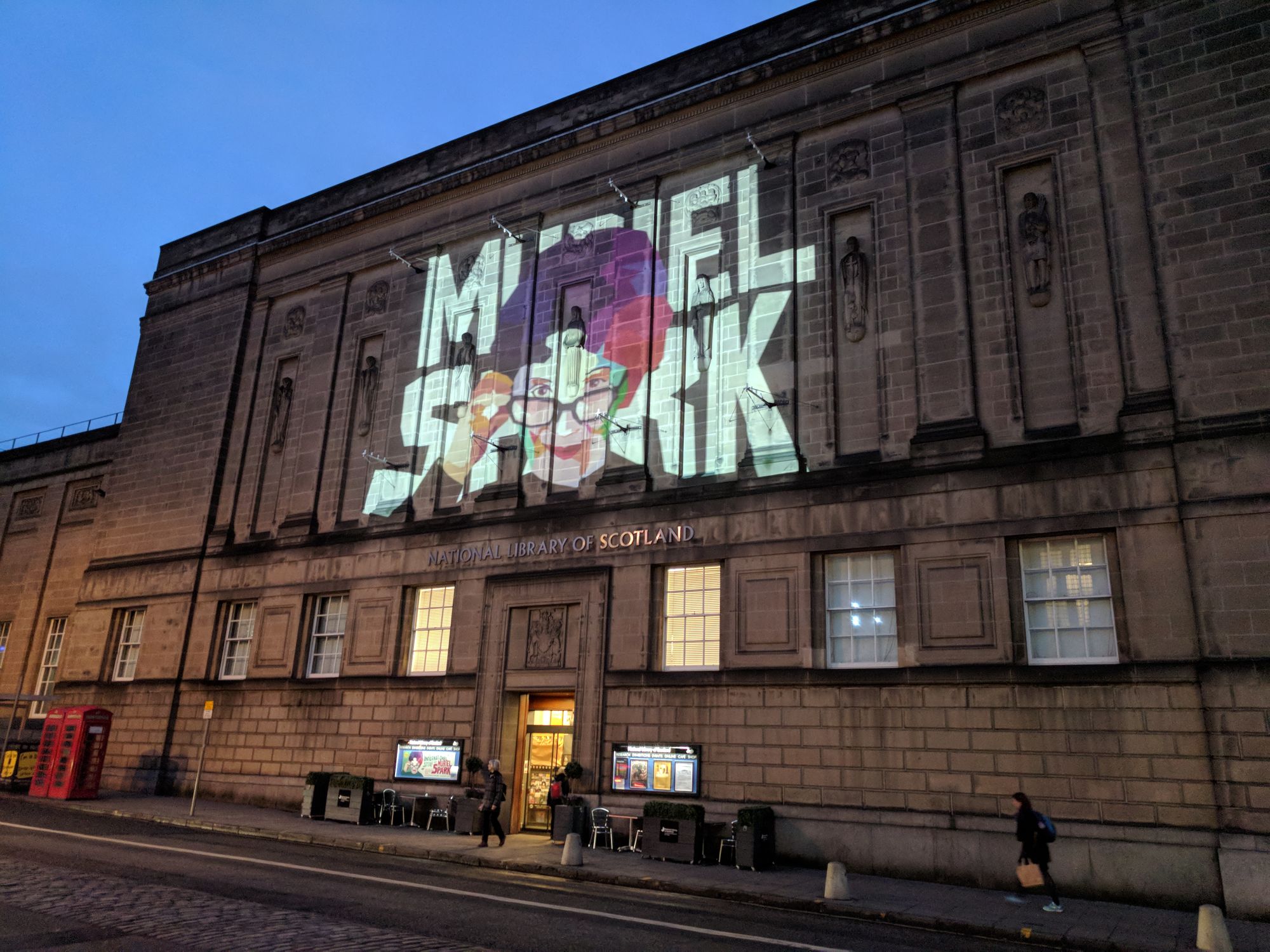
The second is a narrative review of foundational digital library initiatives in the EU and UK, with some reflections on the US. I place this in the context of a high level historical survey of the development of these initiatives and some assessment of the utility of that type of top-down funded support.

Collaboration and consortial activity
Working for Jisc and OCLC, I have always been interested in library collaboration. Where does it make sense to collaborate? This is an area which intriguingly underlines the mutual and evolving construction of policy and strategy, organizational configurations, and technological practice. An example is provided by our work with the BTAA. The BTAA is a research, learning and social powerhouse of mostly public universities centered in the American Midwest. Collectively, it has greater research capacity than the Ivy + group, and individually its universities are crucial engines of social and economic activity in their regions. The BTAA libraries recently declared their intention to manage their collections as a single unit, influenced by the report myself and colleagues Constance Malpas and Mark Sandler prepared.
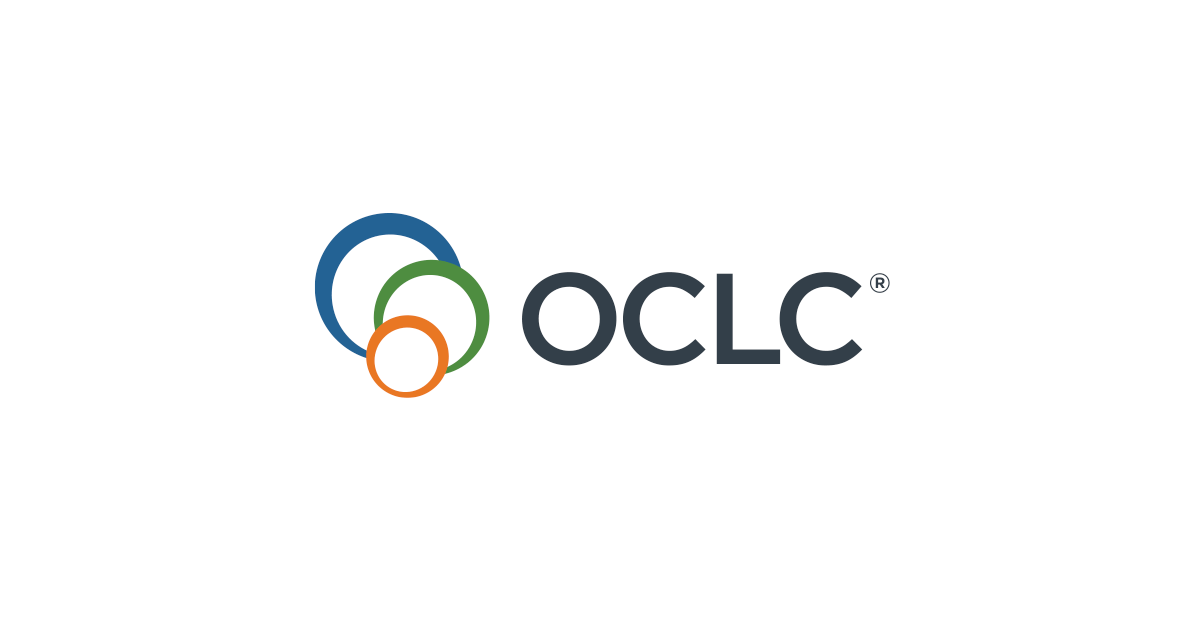
I offer some thoughts about this collaborative balance between autonomy and consolidation of operations within consortial settings in this piece in the Journal of Collaborative Librarianship, where I also reference a series of blog entries on this topic.
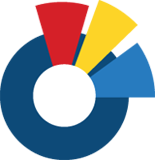
Collections
Collections are core to library identity and service, but have changed in interesting ways. Over the past few years I have been talking about three systemic ways in which collections, broadly understood, are evolving in a network environment. They are: the collective collection, the facilitated collection, and the inside-out collection. In different ways, each moves beyond the carefully constructed and locally acquired collection.
I consider briefly how these directions are accelerated by pandemic effects in an extended blog entry. Libraries are also increasingly focused on optimizing collections against evolving requirements (online learning, or open access, for example) and on pluralizing collections, recognizing the ways in which they are entangled in dominant cultures and institutional settings, and trying to understand where to consciously de-center historically dominant perspectives.
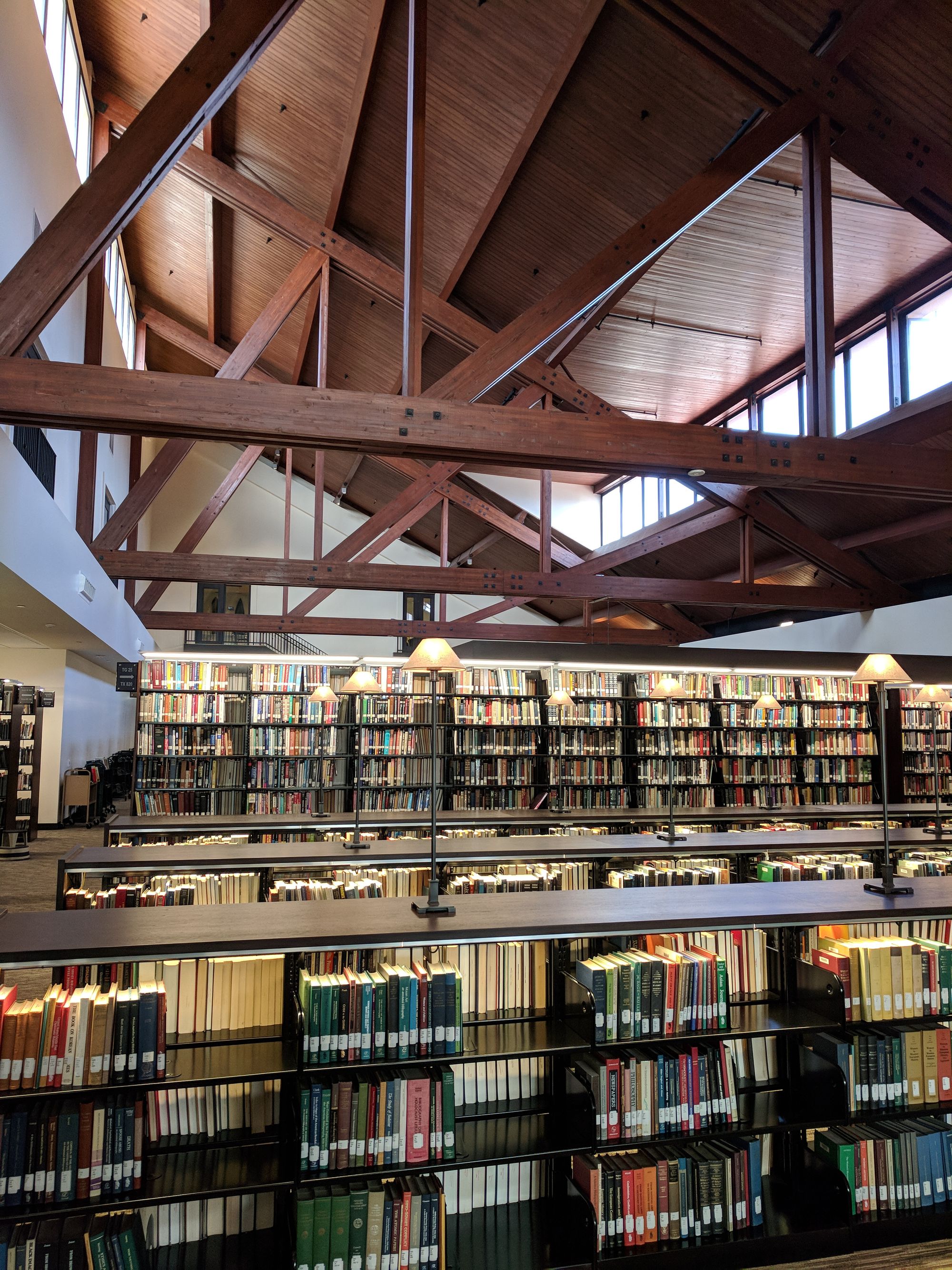
Much of this work has been done with colleagues Brian Lavoie and Constance Malpas. Various of these strands are summarised in an article in LIBER Quarterly.

Our work on collective collections was recently summarised in a contribution to College & Research Libraries.
Systems and services
I have tracked library discovery developments over the years. For most library users, discovery happens elsewhere, so I have been especially interested in locating library services within the broader environment of use. I contributed an extended introduction to this edited collection summarising recent trends and issues: Resource Discovery for the Twenty-First Century Library (2020).

Digital preservation seems to be emerging again more strongly as an area of attention. This piece with Brian Lavoie considers some general questions. It is quite old now, but many of the questions still seems relevant.

The digital library and the network
Early digital library work had three strong emphases. The first was on repositories of content, thinking about actual discrete digital collections. The second was on the protocol frameworks for tying network components together - searching, federating, requesting, and so on. And the third was on the metadata frameworks that provided intelligence about what was available and about how it worked. In the earlier part of my career, I was very involved in the second and third of these.
A major contribution was Libraries, networks and OSI, a book length report which documented the early impact of networks on library services in the US, ranging over collaboration, the early Internet, and applications for resource sharing, distributed searching, and so on. It provide an early lesson in marketing. OSI was the ISO protocol suite supported by the European Union and other governments. There was major work done to implement OSI library application protocols, which is described here. However, OSI soon became eclipsed by TCP/IP and the Internet stack. By the time the second edition was published by Meckler in the US, OSI was already on the way out. I should have just called it Libraries and networks or somesuch!
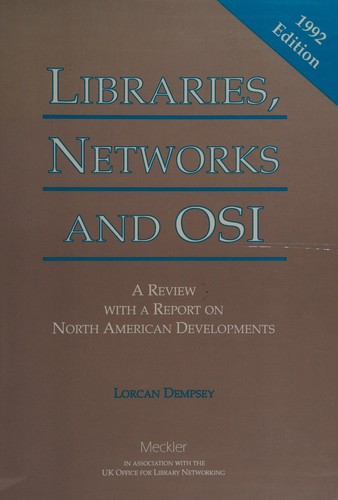
This is a wonderful book that we should thank Dempsey for writing and the British Library for supporting. (I do find myself thinking, parochially, that it is strange that the first real book on these topics has been written from a European perspective and underwritten by the British Library. The topics covered are terribly important to the library, information science, and networking communities. Why hasn't this type of book been written from a U.S. perspective?) // Clifford A. Lynch, The Public-Access Computer Systems Review 2, no. 1 (1991): 171-176.
The article that I wrote on metadata with the sadly deceased Rachel Heery remains my most cited (published in the more 'scholarly' Journal of Documentation). We reviewed the current state of the art of metadata in the library and related sectors, and discussed function and direction. We offered this definition of metadata which I still quite like: "metadata is data associated with objects which relieves their potential users of having to have full advance knowledge of their existence or characteristics. A user might be a program or a person."
Finally, I note an area of considerable focus where I have come to have mixed feelings. Through the MODELS project (Moving to Distributed Environments for Library Services) we did quite a bit of work which influenced early UK nationally funded digital library work. It gave rise to some interesting vocabulary - 'clumps' for 'physical union catalogs' (as opposed to federated or 'virtual union catalogs') and 'discovery to delivery' (or discover, locate, request, deliver). A major focus was on reference models for library services, abstract characterizations of functional areas. We picked up this emphasis later in some work with the Digital Library Federation in the US. There is a balance between this kind of top down activity and more opportunistic or entrepreneurial work to identify and cater for emerging needs. I would now lean to the latter as a stronger engine of progress. Here is a rather prolix and long discussion of some of this work.
Influences
My best career advice is to work with people who are smarter than you are. Over the years, I have benefited enormously from writing with colleagues. And some important collaborators recur in the list of publications.
I mentioned above that the professional nature of most of my writing means that it is not explicitly theoretical. However there are some important shaping influences and interests.
- Historically, Raymond Williams has been the thinker to whom I am most indebted, acknowledging that he may now seem antique to many. I hope some day to write about his novels.
- As somebody Irish who has lived for significant periods in the UK and the US, and given our children's multiple affiliations, I am increasingly interested in questions of diaspora, migration, identity, (de)colonization.
- In recent years, a shaping background influence has been the emergence of sociotechnical thinking and the practice turn: services, organizational patterns and technology come into being through their mutual interaction. I have found the work of Wanda Orlikowski and colleagues especially suggestive. The distinction they make between technology-as-artifact and technology-as-practice is especially relevant to library discussions. It would be interesting to consider some library trajectories through the practice lens.
- My thinking about modernity is influenced by Castells, Giddens, Beck and others, and especially by writers on space and mobility (Massey, Lash/Urry, Creswell, Thrift, Harvey, ...). I return to those modern classics by Benjamin and Benedict Anderson occasionally.
- Libraries are organizations in a richly interconnected organizational ecosystem and I believe have something to learn from organizational behavior and economics. Work stemming from Coase is clearly relevent here, as we think about what libraries internalise as opposed to externalise to vendors or to cooperative arrangements.
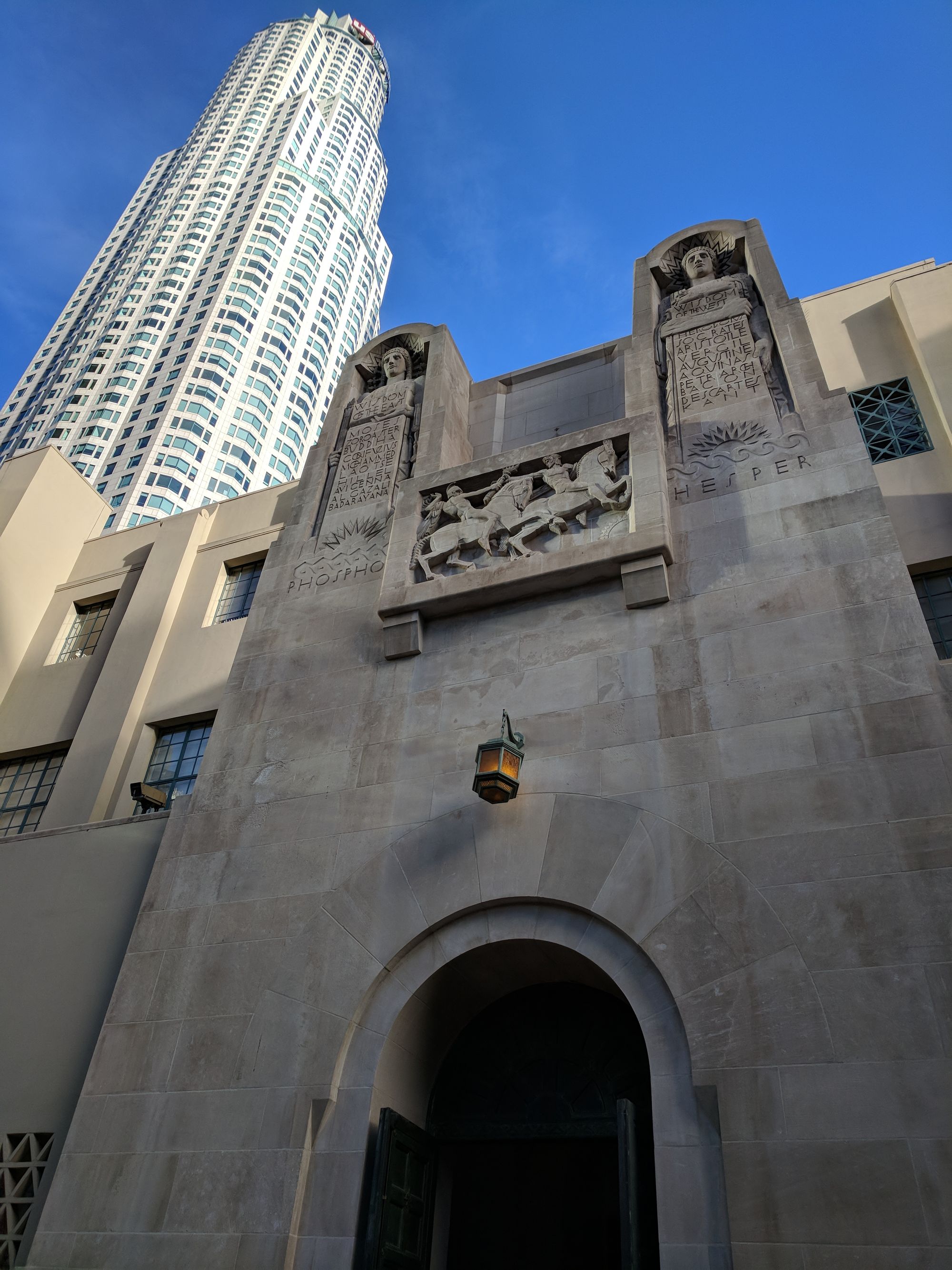
A discussion of how politics and collecting are entangled.
A note on open access
Not subject to the academic pressure to publish, or to cultivate citations, I have often published in response to invitation, have contributed much as technical reports outside of the journal literature, and have favored open access channels. I have usually tried to ensure that an openly accessible version is available. It is interesting to see which of those copies has persisted.
Importing the list of publications above, I was also reminded how much I had published in D-Lib Magazine and Ariadne Magazine (which I co-founded), each an important record of early programmatic work in digital libraries, in the US and UK respectively. Of course, neither continues as an active publication, which itself is a comment on early web activity (and the diamond access path to publication).
An occasional theme in my presentations and panel discussion has been the library community's own practice in relation to open access. It makes sense to model the practice one would like to see elsewhere, so I think that we should be especially focused on the structure and availability of our own literature.
Picture: My son, Eoghan, created the feature picture.

